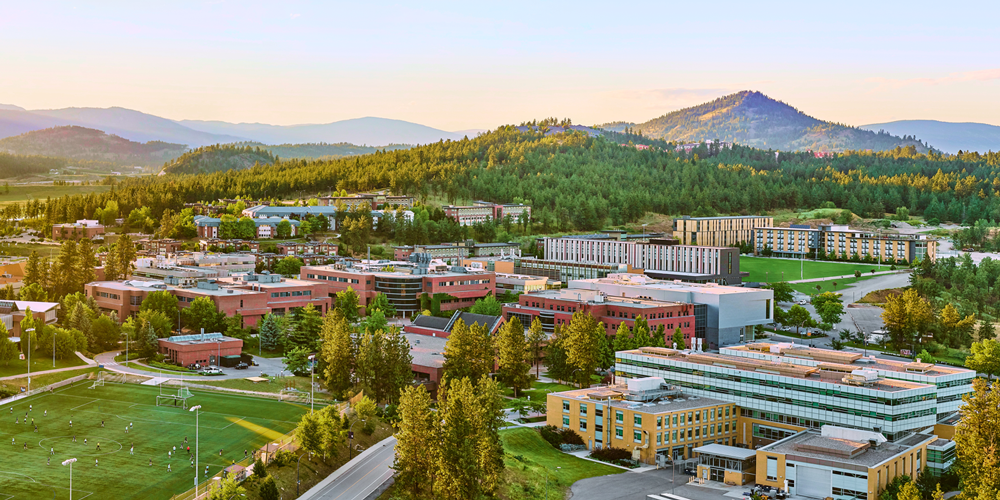Bachelor of Health and Exercise Sciences (BHES)

Bachelor
4 years
Faculty of Health and Social Development
Why study Bachelor of Health and Exercise Sciences at UBC Okanagan?
Complete your UBC degree in Health and Exercise Sciences, a discipline focused on the interdisciplinary nature of human health including psychological, physiological, neuromechanical and socio-cultural aspects of movement.
Experiential Learning is the cornerstone of our program. Our undergraduate students engage in many forms of competency-based courses, hands-on skill-building labs, community practicums, independent research projects and undergraduate honours research theses.
Careers and Outcomes
UBC degrees are respected by employers around the globe. Program graduates will have the skills to pursue a career in a variety of fields like,
- Kinesiologist
- Clinical exercise physiologist
- Exercise and rehabilitation professional
- Community health promotion specialist
- Medical doctor/sports medicine*
- Occupational therapist*
- Physical therapist*
- Chiropractor*
- Occupational health and safety consultant
- Health and wellness/return to work coordinator
- Personal health coach
- Community recreation manager/director
- Program coordinator (e.g. Parks and Recreation Dept.)
- Health and social policy director*
- Nutritionist*
- Public health director*
*Additional education is often required for this occupation

Experiential Learning
Expand your horizons while studying abroad, conducting meaningful research, or working in the community with your UBC colleague.
Learn more about Co-op, Go Global and Undergraduate Research Awards opportunities at Experiential Education.
Community practicum placements are integrated into our concentrations and provide you with the opportunity to actively engage with the broader community and apply what you are learning in real-world settings.
You may also collaborate with faculty members to undertake research as part of an independent project or an undergraduate honours thesis. Your participation in these projects enhances your knowledge of cardiovascular and respiratory diseases, the science of behaviour change for improved wellbeing, and the influence of the brain and muscles on the control of human movement and balance.
Global and Close-Knit
At UBC Okanagan, you gain all the benefits of attending a globally ranked, top 5% university while studying in a close-knit learning community. 50% of graduates, from all across the globe, choose to stay in the region.

Discover the Okanagan
A diverse natural region with sandy beaches, beautiful farms, vineyards, orchards and snow-capped mountains, the Okanagan is an inspirational landscape perfect for those seeking leisure or outdoor adventure.
UBC's Okanagan campus borders the dynamic city of Kelowna, a hub of economic development with a population of more than 150,000 people— the fourth fastest-growing population in Canada.
Already applied? Check your status or accept your offer.



